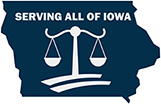Who Should Pay Your Medical Bills?
Transcription
The issue of who should pay your medical bills is a big topic and personal injury cases. Often people think that the other person's insurance company will pay for their bills. In my experience, it is rare in a personal injury case that the defendants insurance company will pay your medical bills as they are incurred. They may tell you to send your medical bills to them, but that does not mean they are agreeing to pay them. This is true even if liability is obvious, and they have already paid for the property damage. Why would they do this? The insurance company understands that if the bills go on paid, then you will start getting collection calls and maybe more desperate to settle your case, which means paying us money. The fact is that the other person's insurance company is not required to pay your medical bills as they are incurred and usually will only pay your medical bills at the time of a final settlement when they can obtain a release, therefore, do not count on the other person's insurance company paying your medical bills. The exception to this rule is what is called medical payments coverage. For example, if you are injured on someone's property, regardless if they are at fault or not, then they may have what is called medical payments coverage, which could pay for a portion of your medical bills, depending upon the coverage available, usually between $1000 and $5,000. So how should your medical bills be paid? We would recommend the following but keep in mind that a qualified personal injury attorney can assist you in determining what is best for you and your situation. Number one, your own health insurance, either from your job, your spouse's job or you purchased it on your own. Number two, for car, truck and motorcycle accidents, medical payments insurance coverage from your own insurance policy. If you were driving your vehicle and were involved in a crash, if you were a passenger in someone's vehicle in a crash, then they may also have medical payments coverage available on the vehicle that you are riding in. Number three. If you are not covered under an insurance plan, you may be eligible for insurance through the Affordable Care Act and can learn more at www.healthcare.gov. If you have problems, you can contact your local Department of Human Services for help. Number for your own personal injury funds if you are not insured and are not able to pay medical bills as they are incurred. If none of the above options are available to you, then we can often convince medical providers to hold off on collection efforts. In an exchange for being paid directly from any settlement or verdict. This way, collection agencies are not calling you and your bills will be paid from your recovery, if any, keep in mind, health insurance policies have what is called a subrogation provision. What this means is they get paid back from what they pay from the money you recover. Unless your insurance company is self funded, meaning they pay the claims from their own money. Then Iowa law allows us to charge your health insurance company a 1/3 fee, which we pass on to you. For example, get your health insurance carrier pays $15,000 in medical bills, because you have an attorney involved in your case, they do not get a free ride and you would only be required to pay them back $10,000 the other $5,000 goes back to you.


